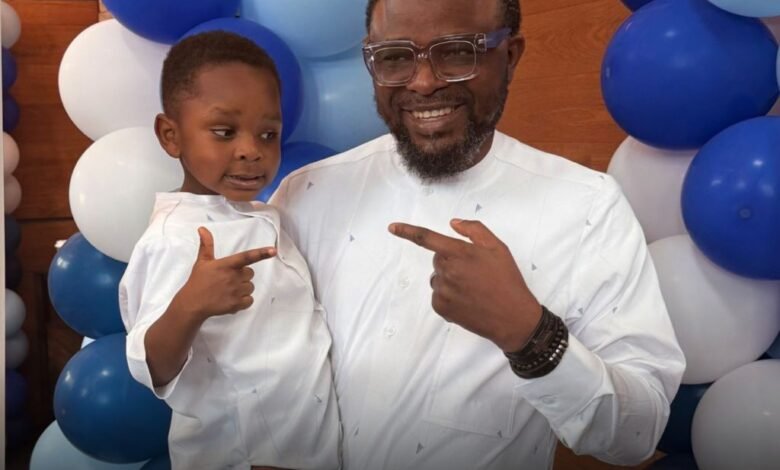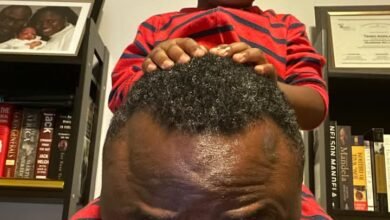Children Come with a Parenting Manual and I Use It …Why I Reject the Trial-and-Error Mindset and Choose Purposeful, Value-Driven Parenting

One of the most painful things I was robbed of in childhood was my curiosity.
Abuse didn’t just silence my questions, it shamed them. It taught me that wondering was wrong and that thinking for myself was unsafe.
And yet, today, one of my greatest victories is reclaiming that curiosity.
It’s still a work in progress, but I fight to think. I question everything. I don’t follow crowds. I don’t parrot clichés.
As Dr. Mike Murdock once said,
“Those who pass on information also pass on error.”
That’s why it is our sacred responsibility to process information, not just consume it.
This mindset is what led me to start challenging long-held assumptions in parenting and child development, those seemingly harmless phrases we often leave unexamined.
Take these, for example:
🔸 “There are private and non-private parts when it comes to sexuality education.”
I say, every part of a child’s body is private to the child. We must teach body autonomy without dilution.
🔸 “Children are vulnerable.”
I say, vulnerability is not inherent in children; it is shaped or shielded by adult choices. What we often call “child vulnerability” is, in reality, adult irresponsibility.
🔸 And then the popular one, Parenting doesn’t come with a manual.”
Wait, what?
That one, I’ve wrestled with for years. What does that even mean?
That there’s no guidance? No structure? No clear expectations? That we’re just winging it while raising human lives? That we’re conducting trial and error on children who will one day lead families, lead institutions, lead nations?
I don’t agree.
Parenting does come with a manual. Maybe not a neatly bound book sitting on a shelf, but certainly a moral, spiritual, and legal framework.
Let me break it down.
Our precious children came from a Source and that Source, God, has expectations.
The State also grants us legal authority over these children, and with that authority comes responsibility. Both the divine and the legal agree: there is a manual, a clear roadmap of accountability.
We are not the inventors of children.
We are caretakers. Stewards.
We don’t raise children based on vibes, we raise them based on values.
And Scripture affirms this truth:
“Train up a child in the way he should go, and when he is old, he will not depart from it.” — Proverbs 22:6
This means:
There is a way a child should go.
It is our sacred duty to know it, walk in it, and lead them in it.
Likewise, the law demands that everything we do must be in the best interest of the child, and it provides clear, reasonable parameters for determining exactly what that best interest entails.
Let’s raise children purposefully with vision, conviction, and accountability.
Let’s be honest: when people say “parenting has no manual,” what they might mean is “we can’t be perfect.” That’s true. But imperfection is not the same as directionlessness.
You can know where you’re going, even if you stumble a few times on the way.
At 55, raising my first son in my twilight years, I’m more convinced than ever that purposeful parenting begins with a clear understanding of who children are.
And here is what I’ve learned over three decades of advocating for children:
1️⃣ A child is a person of worth, made in the image and likeness of God.
2️⃣ A child is a reasoning being, they have a sense of judgment.
3️⃣ A child has a will, the power of choice, which must be shaped, not crushed.
4️⃣ A child has the capacity for responsibility, even from an early age.
These truths are not mere theories; they are the bedrock of a true parenting manual.
This manual must shape how we speak, model, discipline, affirm, correct, and empower our children. While we raise children with shared values, we must never forget: children are not mass-produced. Each one carries a divinely orchestrated destiny, set in motion before the foundation of the world.
It is the sacred duty of both primary and secondary parents to uncover that destiny and nurture it deliberately.
This means our parenting manual must have two essential parts:
• The Objective Part: our universal understanding of children and the expectations of both God and the law in raising them.
• The Subjective Part: our intentional response to the uniqueness of each child, recognizing that every child’s path is distinct and must be nurtured accordingly.
So no, I reject directionlessness.
I reject clichés.
I reject trial-and-error parenting.
Our children are far too important for us to improvise their future.
As we raise our son, daily and deliberately, under God and anchored in faith—we turn to:
• Knowledge: knowing what to do
• Skills: understanding how to do what we know
• Fortitude: drawing the inner strength to do what is right, even when it’s hard
Because parenting is not guesswork, it is sacred work.
✊🏾 There is a manual. Let’s follow it with courage, clarity, and commitment.





